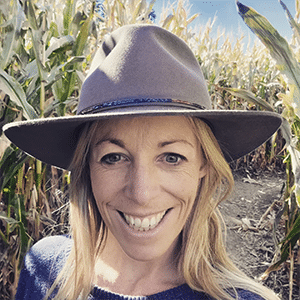 [1]The PCC was pleased to select Dr. Laura Lewis as a PCC Fellow in 2018. Since completing her fellowship, Dr. Lewis has joined the team at the U.S. Anti-Doping Agency (USADA) where she is Director of Science. You can learn more about her research and career in our interview below.
[1]The PCC was pleased to select Dr. Laura Lewis as a PCC Fellow in 2018. Since completing her fellowship, Dr. Lewis has joined the team at the U.S. Anti-Doping Agency (USADA) where she is Director of Science. You can learn more about her research and career in our interview below.
Background
Tell us about your educational background.
I have a BSc (Hons) in Sport and Exercise Science from the University of Birmingham (UK) and a Ph.D. in Exercise Sports Physiology from Flinders University in Australia.
What educational/professional opportunities helped you reach this point in your career?
After completing my undergraduate degree, I had the opportunity to move to Canberra, Australia for an internship in the Physiology Department of the Australian Institute of Sport (AIS). This was a pivotal point in my career. During that year at the AIS, I was fully immersed in high-performance sport and knew that I wanted to continue to do applied sport research with elite athletes. The following year, I began my Ph.D. and traveled with the Australian Women’s cycling team throughout my studies. This experience allowed me to understand all that is right and wrong with the elite sports world, and it would eventually lead me into anti-doping.
Why did you choose to go into anti-doping research?
One of my Ph.D. supervisors and mentors was Professor Chris Gore, who was head of the AIS Physiology department at the time. Chris has been a long-time advocate for clean sport and helped develop aspects of the Athlete Biological Passport (ABP). He encouraged me to pursue anti-doping research, including applying for a PCC grant in 2015. The grant was awarded, providing me the opportunity to research the effect of intravenous iron supplementation on erythropoietic adaptation to altitude, as well as opening the door for me to become an ABP hematological expert.
Research
What do you find most interesting or exciting about your research area?
Since joining USADA as Director of Science in 2020, I am now able to collaborate with many labs and research groups around the world to advance clean sport. Right now, I am most excited about research that improves the overall athlete experience, whether that is new sampling methods or policy changes that protect athletes from testing positive for banned substances due to contamination.
What were your plans for your PCC-supported research, and what ultimate findings did you see?
My goal was to provide more information relating to confounders of the Athlete Biological Passport which could help experts with their interpretation when reviewing passports. This would not only help to reveal patterns of blood manipulation but also protect clean athletes.
What impacts has your research had on the field of anti-doping?
My PCC research has been cited many times in legal proceedings relating to ABP cases and provides important data for ABP experts.
Goals and PCC Benefits
How has PCC funding helped enable your research success?
PCC funding enabled me to conduct relevant anti-doping research in a timely manner. Things change in this space rapidly, so funding bodies that offer only one opportunity for funding can be limiting. The PCC has multiple review streams and opportunities to submit applications several times during the year.
What have you gained from your fellowship experience?
My fellowship provided the intermediary step /springboard between academia and the anti-doping network. Anti-doping may be fairly niche, but as a truly global network, it can be daunting to know where to start. Being a PCC fellow provided a supportive environment to make those necessary connections.
What are your long-term research or career goals?
I am very passionate about the clean sport movement and am in this industry for the long-haul. My ultimate goal is to support testing practices and policies that are fair and equitable for athletes all over the world. Testing has certainly evolved in the last 20 years with the introduction of the Athlete Biological Passport and dried blood spot testing, but there is still more that can be done to make sport a truly level playing field.